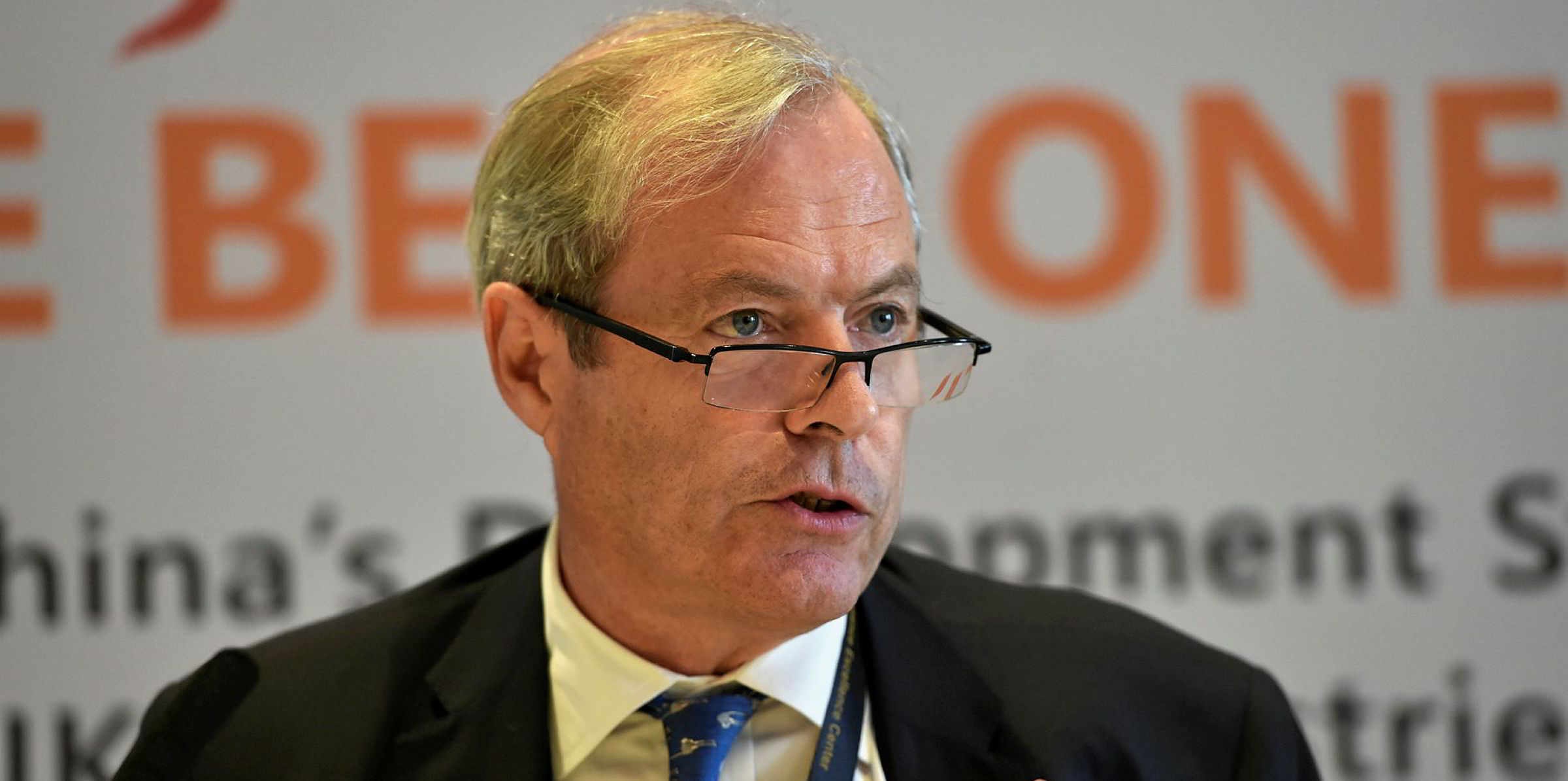Major lenders to shipping are set to swing behind the voluntary Poseidon Principles to align their lending with climate change mitigation aims, the project's founder has claimed.
Citi’s Michael Parker told the opening of the Global Maritime Forum in Singapore today that he expects up to 90% of ‘serious’ lenders to shipping to sign up in the next year.
So far just 12 banks representing about 20% of the $400bn global shipping debt market have committed to incorporate the Poseidon Principles into their lending, notably with no Asian or US banks with the exception of Citi.
“We are confident we will get 80 to 90% of all serious shipping lenders signed up to the principles during the course of the next 12 months,” said Parker, who is chairman of global shipping and logistics at Citi, and leader of the Poseidon Principles initiative.
“We expect some [Asian banks] to sign fairly soon. What we have to understand is that these issues go to the board level of financial institutions because when they make commitments on environmental policy they have to be very careful about it,” he said.
“Particularly some countries in Asia are very thoughtful about these things. The Europeans have been quite advanced on this for some time, especially in France and Holland.
The Poseidon Principles, which grew out of last year's inaugural Global Maritime Forum, were launched in June to align lending with the IMO’s aim for shipping to cut greenhouse gas emissions by 50% by 2050 compared with 2008 levels.
Parker summed up the initiative: “This is about responsible banks supporting responsible owners. This is not banks telling owners what to do.
“This about aligning the global financial community that supports this industry with the objectives of the global regulator.”
But despite the backing of some influential European and Scandinavian lenders, including Societe Generale and DNB, lenders in Asia have remained aloof.
Parker has visited Beijing to present the proposals, but Chinese lessors say privately they need time to study the potential impact of the scheme on their business.
A senior executive at a Chinese lessor, who declined to be identified, told TradeWinds recently: “The issues are complex, and there are hundreds of pages of documentation for our legal team to translate and understand.
“We might sign at some point, but it will not be fast.”
Kristin Holth, global head of ocean industries at DNB and part of the Poseidon Principles drafting committee, told a plenary session of forum that the project now had two targets.
“It is a good platform for new initiatives.
“First of all, we must get more banks on board, Asian but also American, so we can have a much broader banking group aligned to the principles. And second is to incorporate them into the reality.
“It is a process for 2020 to get this going in a practical way of how we report and how our portfolios will look like.”
Paul Taylor, global head of shipping at Societe Generale, said the Poseidon Principles may ultimately help encourage more finance for more less polluting ships.
“I think what the Poseidon Principles will lead to is more liquidity for those vessels that are supporting the energy transition. That is an underlying ambition,” he said.
“In this world of finite capital in the banking market, more liquidity will be put aside for greener vessels, but we will still refinance ships. We want to support our clients. That is why we are in business and that is not going to change.”
He added: “By signing the principles there are no obligations to change the types of deal we do, so we can carry on financing the ships we want to finance for the clients we want to support. That will continue.
“At Societe Generale our strategy is to finance new and modern ships, so that strategy should not change.”







